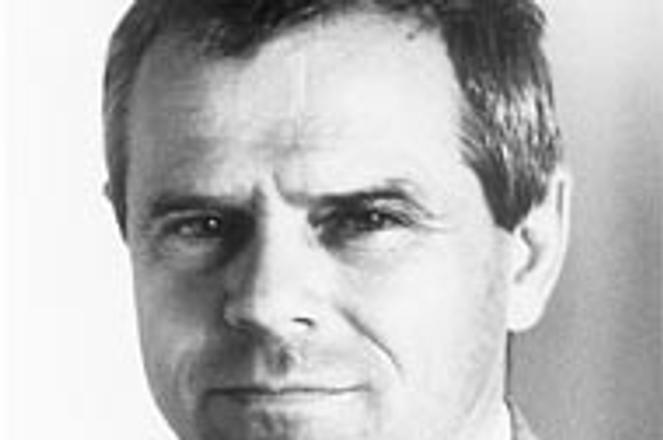Culture Minister Milan Kňažko.Vladimír Hák-Profit
Born in 1945 in Horné Plachtinice, Culture Minister Milan Kňažko has served time as a theatre stage technician and a miner. Kňažko is best known, however, for his work as a famous film and television actor. Kňažko is a graduate of the National Academy of Arts in Bratislava, and has trod the boards with the Slovak National Theatre.
Kňažko was a co-founder of the Public Against Violence, the first democratic party to be created after the November 1989 revolution. He also co-founded the Movement for a Democratic Slovakia (HZDS), which he left in 1993 after Vladimír Mečiar became chairman.
Kňažko served as an advisor to Czech President Václav Havel in the former Czechoslovakia, and as a Parliamentary deputy in the Czechoslovak Federation. After Slovakia separated from the Czech Republic in 1993, Kňažko became a minister without portfolio and vice-chairman of the Slovak Cabinet, rising to Foreign Minister in 1994. Since November 1994, he has been a Parliamentary deputy for the Democratic Union, which later became part of the SDK coalition party. He is married with three children.
The Slovak Spectator (TSS): One of the most widely criticised changes in the field of culture under the Mečiar government was the creation of 38 regional cultural centres under Interior Ministry control by merging 151 formerly independent organisations. Will the new government return to the old model?
Milan Kňažko (MK): Yes, we will make changes. We'll cancel all regional culture centres and return to the institutions their legal independence.
TSS: This is also connected with the question of removing the state's hands from culture. What are your intentions here?
MK: It's a gradual process. It will require transferring this legal independence, which I have just mentioned, and other self-governing powers to individual institutions and funds. Naturally, we also want to de-centralise the decision-making process, which should be controlled by the creators of culture and art.
TSS: One of the hallmarks of the former government was the privatisation of cultural institutions. What will be the fate of these bodies?
MK: We will investigate all these privatisation processes. Right now, I'm not able to tell you anything exact, but a lot of things will have to be reviewed, that's for sure. So far, I have issued orders to prohibit all financial transactions in the whole sector. We will be able to tell you more after closer analysis.
TSS: What about personnel changes in culture?
MK: Yesterday [November 2] I dismissed all section directors, and today I will appoint new ones. I will also today dismiss all directors of cultural institutions directly controlled by the Ministry. They will be replaced by assigned officers until a normal job-search process can be held.
TSS: So you want to give culture a non-partisan character?
MK: Yes, for sure. The first priority of new applicants for Ministry posts will be their qualifications.
TSS: How do you see the relationship between Slovak and foreign cultural bodies developing? How does our quality compare to that of foreign countries?
MK: First of all, decisions concerning quality will have to be made here, at home. And the criteria will be only professional, not political. As for relations with foreign countries on the cultural level, I would like to prepare several important projects to get on better tracks with them, but it's still too soon to be more specific.


